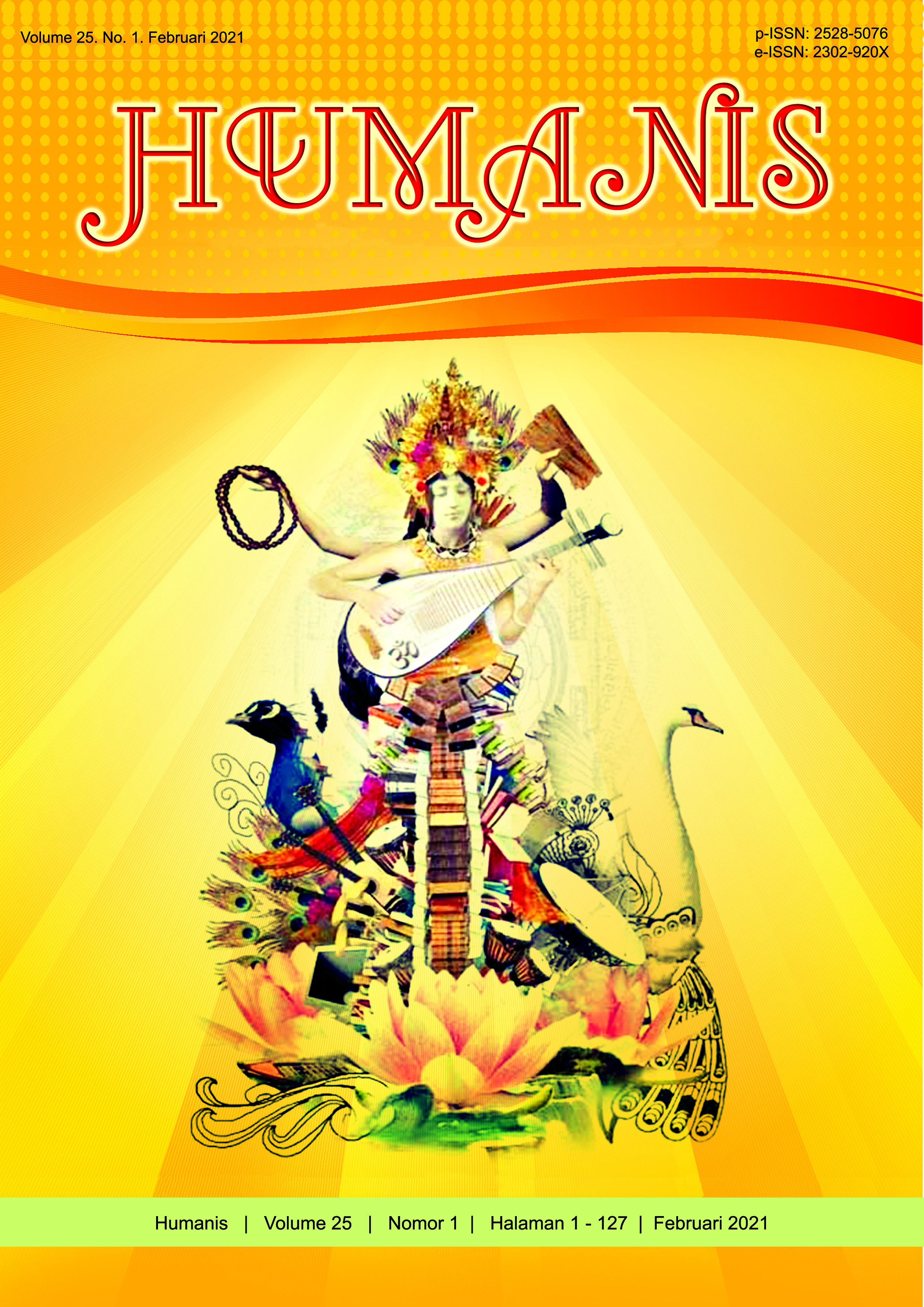Noun Form of Address of Characters in the 21 Jump Street Movie
Abstract
This study is aimed to identify the types of noun form of address and describing the function of noun form of address applied in the movie. The data of this study was taken from a movie entitled 21 Jump Street as the primary data. The data was collected by documentation method and note taking technique. A qualitative method was used to analyze the data. It means the data was described based on theories applied in this study. The theory proposed by Braun was used to analyze the types of noun form of address. Whereas, the theory proposed by Brown and Gilman was used to analyze the function of noun form of address applied by characters in the movie. The results found five types of noun form of address, namely; names term (first name, last name and nickname), kinship term, title, occupational term, terms of endearment. This study does not find any data related to the abstract noun because this movie does not have any scenes which describe the abstract quality of the addressee, such as in the kingdom or court. Moreover, the function of noun form of address terms to show solidarity becomes the highest occurrences in the movie.
Downloads
References
Braun, Friederike. (1988). Terms of Address: Problems of Patterns and Usage in Various Language and Cultures. Contributions to the sociology of Language, 50. Berlin: Mouton de Gruyter.
Brown, Roger/Gilman. Albert. (1960). "The pronouns of power and solidarity". American Anthropologist 4/6: 24–29.
Chaika, Elaine. (1982). Language: The social Mirror. Newburry House Publisher: USA.
Esmae’li, Saeedeh. (2011). Terms of Address Usage: the Case of Iranian Spouses. International Journal of Humanities and Social Science. Vol. 1, No. 9. Special Issue – July 2011: 183-188
Hwang, Shin Ja J. (1991). Terms of Address in Korean and American Cultures. Intercultural Communication Studies. Volume I, Number 2, Page 117-134.
Krisnanda, Nabila. (2014). Addressing System of Kinship Terms in Javanese Society: A Case Study among Javanese People Living in Semarang. Journal on English Language, Culture and Literature. Vol. 3, No. 4.
Lumbanbatu, Sarnyanti. Jufrizal & Delvi Wahyuni. (2018). An Analysis of Address Terms Based on Kinship System of Batak Toba used by Bataknese in Padang. E-Journal of English Language & Literature. Vol. 7, No. 1, pp. 152-165
Mardiha, Mahzad. (2012).The Role of Age and Gender in the Choice of Address Forms: A Sociolinguistic Study. International Journal of Applied Linguistics & English Literature. Vol. 1, No. 4. September 2012, pages 173-182.
Meylina. (2014). A Sociolinguistics Feature of Address Forms in Malay Bengkulu. Literary Criticism Journal. Vol. 1, No.2. June 2014
Oyetade, Solomon Uluwole. (1995). A Sociolinguistic Analysis of Address Forms in Yoruba. Language in Society. Vol. 24, No. 4. December 1995, pp. 515-535
Ozcan, Fatma Hulya. (2016). Choice of Address Terms in Conversational Setting. International Journal of Human Sciences. Vol. 13, No. 1. February 2016.
Rahmadani/Wahyuni, Delvi. (2018). Types and Functions of Address Terms used by IPMK-SB “Kampar Students Studying in Padang”. E-Journal of English Language and Literature. Vol. 7, No. 1. March 2018: 132-142
Rifai, Dian Muhammad & Sevian Tri Prasetyaningrum. (2016). A Sociolinguistics Analysis of Addressing Terms used in Tangled Movie Manuscript. Jurnal Penelitian Humaniora. Vol. 17, No. 2, Agustus 2016: 123-134
Salihu, Hajia Hauwa. (2014). The Sociolinguistics Study of Gender Address Patterns in the Hausa Society. International Journal of Social Science and Humanity. Vol. 4, No. 1, January 2014: 48-53
Swandewi, Ni Wayan. (2014). Terms of Address and Politeness in “Love in the Afternoon”. Humanis: Journal of Arts and Humanities Vol. 13. No.2. November 2015.
Wardhaugh, Ronald. (2006). An Introduction to Sociolinguistics: 5th Edition. UK: Blackwell Publishing.
You, Chenghong. (2014). Analysis on the Generalization of the Address Term “Teacher” in Chinese from the Perspective of Sociolinguistics. Theory and Practice in Language Studies. Vol. 4, No. 3. March 2014, pp. 575-580
Zavitri, Irma. Hamzah Machmoed & Sukmawati. (2018). The Address Terms in English and Selayerese: A Sociolinguistic Perspective. Jurnal Ilmu Budaya. Vol. 6, No. 1June 2018, pp. 129-134


















